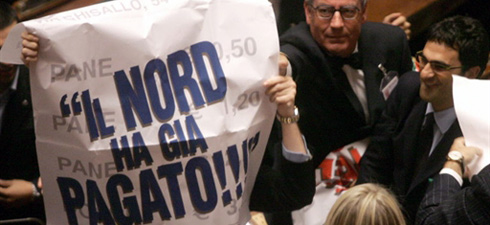The current political crisis in Belgium is a testament to a deep-rooted European problem. Three months after general elections, which were won by the secessionist Flemish alliance, the country is still without a government. Certain Walloon politicians, who were initially unperturbed by the result of the vote, now believe that there is real possibility that the country will be torn apart by the irreconcilable differences between the French and Dutch speaking communities.
Diversity is not an insurmountable obstacle to the development of nation states. Although they have been marked by significant separatist tensions, both Spain and the United Kingdom have have shown that it is possible to combine regionalism and national unity. And the United States, where ethnic communitarianism has long been the norm, is not about to implode any time soon.
However, the reality is that diversity has a negative impact on national cohesion when it is accompanied by significant transfers between different communities. The Flemish do not object to their Walloon neighbours speaking French, but they are unhappy about the scale of the contribution made by Flanders to Belgium’s generous social welfare system. Northern Italians are not hostile to the easygoing lifestyle adopted their compatriots in the South, but feel they should not be asked to subsidise it.
Diversity could also be the gravedigger for the EU’s federalist ambitions
This apparent contradiction between openness to other cultures and financial generosity is not restricted to Europe. Americans have no trouble accepting different lifestyles on their territory, but they are reluctant to sanction any solidarity that extends beyond the immediate area of the local “community.” And this lack of social capital or interest for the common weal is readily discernible in their everyday lives.
Harvard Professor Alberto Alesina has discovered that American towns marked by a high level of social and cultural diversity are also characterised by poorer quality public services: refuse collection is less frequent, public libraries are smaller, sewer systems do not work properly, and social welfare is less well developed. The absence of collective solidarity, which is the price to be paid for diversity, often comes at a high political cost: countries with a wider mix of communities have to contend with governments that are more unstable, and in some cases more authoritarian.
It follows that the diversity, which constitutes the immense wealth of the European continent, could also be the gravedigger for the EU’s federalist ambitions. From this perspective, the sad affair of the Romanian Roma in France, is yet another illustration of the principle of the trade-off between diversity and solidarity.
None of the member states of the European Union, not even Romania, is willing to accept this nomadic people as an integral part of its own community. They are systematically moved on without any examination of the problem they may pose. In response to this vacuum, the European Commission is forced to take a stand, but in view of the fact that its power base is dependent on the EU states in all their diversity, the protection that it can offer to the Roma is limited to moralistic posturing.
Misunderstanding the Scandinavian model
Although it is rarely stated in such explicit terms, the dilemma between generosity and tolerance figures large in questions of internal policy. In the current pre-campaign period in France, it is present like a watermark in the text of most political debates. The parties are eager to take up a position on the solidarity-diversity issue but they are very wary of presenting it as a trade-off, and the ambiguity of their speeches is a testament to serious internal conflicts.
The liberal right appears to be more open to cultural diversity, but inevitably this position is accompanied by a discreet agenda — which it is not willing to acknowledge to part of its electorate — that privileges ethnic communitarianism and a further brake to the distribution of wealth.
The left with its historical attachment to equality of social conditions is a cautious proponent of the homogeneous culture implicit in the notion of a republic. However, its frequent references to the Scandinavian model highlight a key misunderstanding: Swedish-style redistribution of wealth cannot co-exist with American-style social diversity.
Was this article useful? If so we are delighted!
It is freely available because we believe that the right to free and independent information is essential for democracy. But this right is not guaranteed forever, and independence comes at a cost. We need your support in order to continue publishing independent, multilingual news for all Europeans.
Discover our subscription offers and their exclusive benefits and become a member of our community now!












